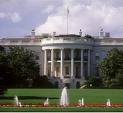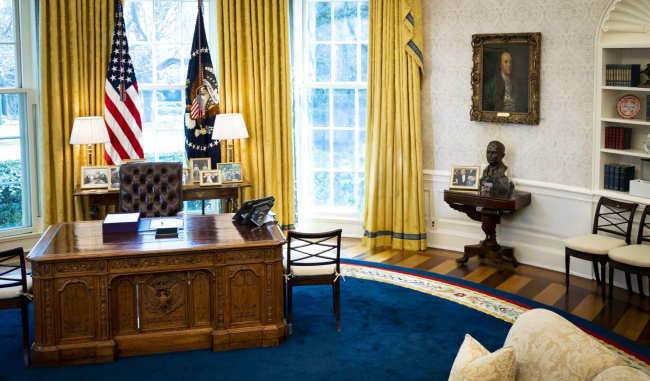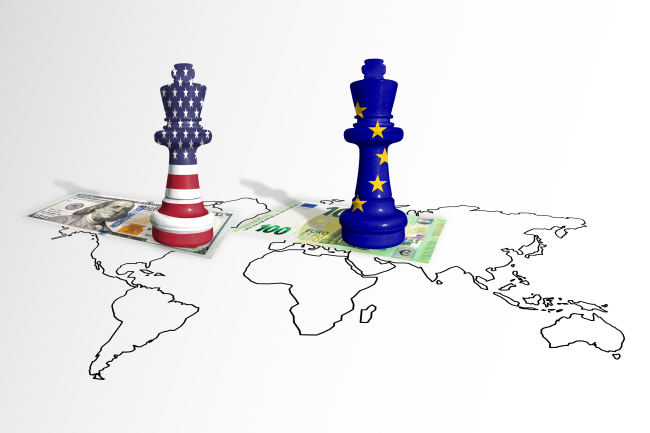How to Misread Polls

Poll numbers are the life blood of politics these days. Anything expressed in digits has a claim to truth that assertions without digits cannot make. They inspire confidence - especially among those aspiring to public office - that they actually understand what public sentiment is.
Candidates thereby supposedly are in a better position to estimate the political consequences of taking position A or position B - or just evading the issue. Numbers also give courage to office-holders faced with controversial decisions since polls help them to foresee how the cookie will crumble depending whether they go this way or that way. The media are equally obsessed by poll numbers. It is a cheap and easy way to report on the standing of individual politicians, of political parties, of hot button issues. In addition, dealing in numbers offers a self-perpetuating story. Since the numbers are always changing, the shifts themselves (however small) become the basis for a column.
There is good reason, though, to take poll numbers with a grain of salt - at the very least. Let's look at the various ways in which these numbers can be misleading and/or inadequate.
Misplaced concreteness. Raw numbers elicited from surveys tell us little about the intensity of the attitudes expressed, how strongly they are held, how salient they are for the respondents. Mock contests between undeclared conjectured candidates long before election day are particularly susceptible to misreading. Often, they merely register the name recognition of the persons involved, the amount of publicity they have been receiving, and the amount of image burnishing they have received from publicists and friendly commentators. Opinions at this early stage reflect fashion as much as conviction. The current Hillary boom for president is an outstanding example of this phenomenon. In 2008, she enjoyed similar vogue status. There is no way of knowing what will happen when juvenile fluff stories about "Planet Hillary" give way to probing examination of the Clintons' intimate ties with financial elites and her record of backing the feckless wars in Iraq and Afghanistan. Of course, the aim of the strenuous efforts made on her behalf to create a sense of inevitability is to ensure that she is never submitted to close scrutiny - by preemptively scaring would-be rivals from entering the race.
Shame. The latest polls tell us that Governor Chris Christie still has favorability ratings of 50% despite the outrageous scandals that have swamped him. Taken literally, this number suggests that he would have a breakeven chance of winning a fresh election were it held now. Yet, who in his right mind would place an even money bet on his reelection under these circumstances? What we are seeing with Christie is a manifestation of the cognitive dissonance phenomenon. That refers to peoples' reaction to being confronted with an extreme contradiction between a pre-existing perception and subsequent evidence that points to drastically different reality about the person or policy or situation. Most persons change their assessment only grudgingly and slowly. They have too much invested in the commitment that they have made. So the common response is first to deny the new truths, then to minimize them, and then only slowly and marginally to shift one's viewpoint. We are in fact, still in the early phases of a psychological process whereby many people who got on the Christie bandwagon, with no small assist from the media and a mute opposition, are finding it difficult to admit (to themselves) that they were wrong, that they were duped, that they have lousy judgment.
A similar psychology explains survey results indicating that more than half of the Americans polled still believe that Saddam Hussein had something to do with 9/11, directly involved or through close ties with al-Qaeda; and a large minority (28%) believe that he actually had WMD. The American people were played for fools by the Bush administration as they were led into a costly, shameful war/occupation thanks to their swallowing whole a string of lies. Very few people have the strength of character to accept the fact they could so easily be deceived. To say now that there was no valid basis for the invasion of Iraq, to acknowledge that it was a stupid mistake - a fiasco of historic proportions, is painful. It erodes their self-esteem. Whatever they feel deep down, therefore, they respond to these questions not as if they are taking an SAT exam. Rather, they are responding to the implicit question: were you a gullible dummy?
In both the Iraq and Christie cases, there is another factor at work that reinforces the disposition to be less than honest in answering poll questions. It is partisanship. For Republicans, a straightforward answer that Christie is a scoundrel unfit to govern or that the Iraq action was a grave error and exercise in mass deception carries the clear connotation that their elected leaders were bad choices for the offices that they held. Such an admission threatens to hurt the party. It follows that cold blooded political calculation points to the giving of responses that whitewash their leaders and thereby the party. This tendency is especially strong among Republicans these days where passions run much stronger than among Democrats. Partisan passion similarly triggers reactions to questions about Barack Obama. Hence, the startling survey results showing that a substantial minority (30%) of self-declared Republicans believe that Obama is a Muslim (2012). 38% doubt that he was born in the United States (2014). Do they really believe that? Of course not. What we see here is the depth and intensity of hostility toward the President. It has no more literal meaning than calling someone a "bastard" states a considered judgment about the marital status of the person's parents when he was born. Reporting that simply cites the numbers is literally accurate. The real story, though, is that a large percentage of Republicans think of President Obama in terms of profanity.
Undifferentiation. Some of the distortion that we see in the reading of poll results stems from the intrinsic ambiguity of what is asked. The outstanding example here is the standard favorability index of various institutions. It is widely reported that the Congress today is held in historically low esteem by Americans. Positive attitudes are held by fewer than one in five Americans. Congress, though, is not a unitary entity. Does the attitude expressed by respondents refer to the Democrats in Congress? The Republicans? The Senate? The House? The leadership? Their particular Congressman or Senator? It takes a far more probing set of questions to get at a full appreciation of the views actually held than the simplistic choices posed to people by so many national polls.
Finally, we have to come to terms with the dismaying truth that public opinion, in individuals and in aggregate, is only exceptionally the outcome of an informed and thoughtful process of deliberation. It is the rationalist myth that we are by nature thinking creatures capable of viewing the world around us in an emotionally detached, mature manner. Very, very few persons approximate that model. Inherited loyalties, deep seated prejudices and preferences, private emotions, the attraction or repulsion of personality - all of these elements come into play to considerable degree. In today's society where attachments of all sorts are weak, where political parties have little cohesion, where associational life has faded, where we are exposed to the barrage of media imagery and messaging, the rationalist model has become less and less valid. Most of us are shaped by influences that we only dimly perceive - whether calculated intent lies behind them or not.
George Orwell wrote: "people believe what the media tells them they believe." This admittedly exaggerated statement is truer today than it was in Orwell's time. For now, there surely is a closed communication loop between a pliable public and a uniform media. And those are the people who answer opinion surveys.
Michael Brenner is a Senior Research Fellow at the Energy Institute of the University of Texas at Austin and a Fellow at the Center for Transatlantic Relations SAIS-Johns Hopkins. You can write to him at [email protected].

Available in:
Regions and themes
Share
Related centers and programs
Discover our other research centers and programsFind out more
Discover all our analysesDonald Trump v. the States: the Case of New York
While the disruptive policies of the second Trump administration are being implemented at the federal level and on the international stage, they are also being felt in the federal states and major cities across the country. In the spring of 2025, several cases involving the state and city of New York demonstrate that the president’s attacks on environmental protection, the separation of powers, freedom of speech, etc., are also being carried out at the local level.
How the US under Trump Became a Strategic and Ideological Adversary of Europe
The Europeans' worst security nightmare seems to be coming true: on Tuesday, February 18, 2025, U.S. Secretary of State Marco Rubio and Russian Foreign Minister Sergey Lavrov met in Saudi Arabia to initiate the normalization of relations between their two countries. The meeting also aimed to set up peace negotiations for Ukraine. However, despite having the potential to affect the entire continent, the discussions took place without the Europeans or the Ukrainians being present.
Will Trumpian Authoritarianism Lead to a Constitutional Crisis?
Since his return to the White House on January 20, 2025, President Donald Trump has signed around sixty executive orders to implement his political agenda. Numerous other measures have also been introduced by the White House and the new Department of Government Efficiency (DOGE) as part of these orders.
Trump’s Second Term: Laying the Groundwork for a New Trade War
In a statement released on February 1, 2025, President Trump announced the implementation of a 10% tariff on Chinese goods and a 25% tariff on imports from Canada and Mexico. While the former took effect via executive order on February 4, the latter were granted a 30-day reprieve. Sanctions targeting European Union (EU) products are said to be imminent.








